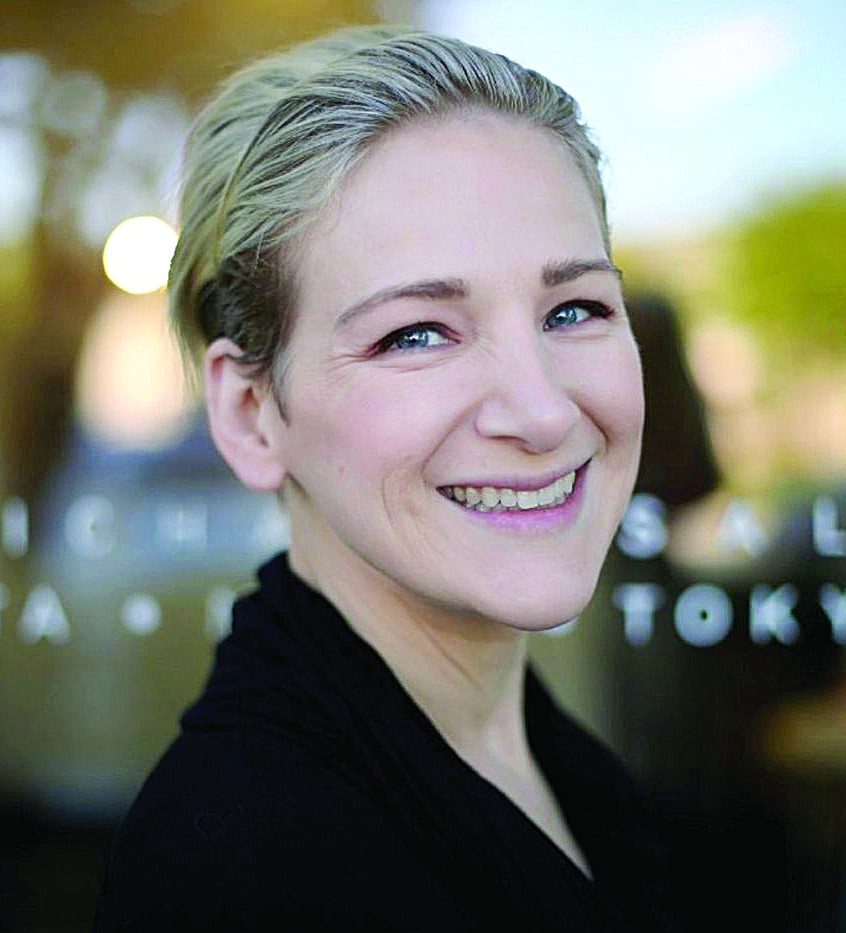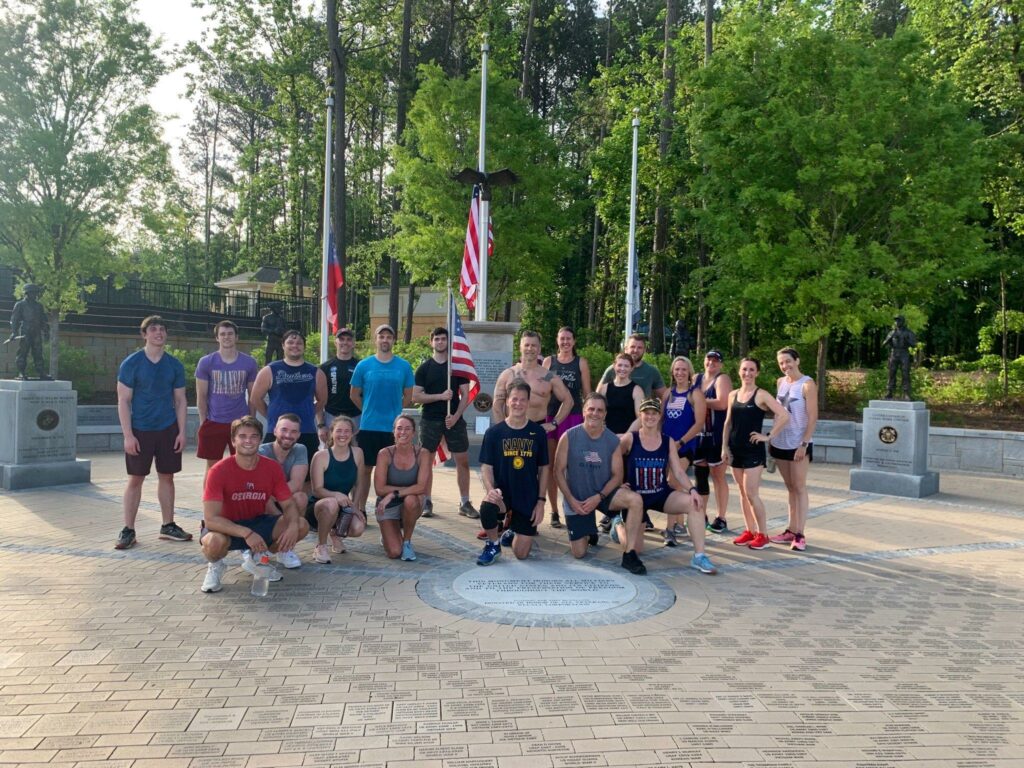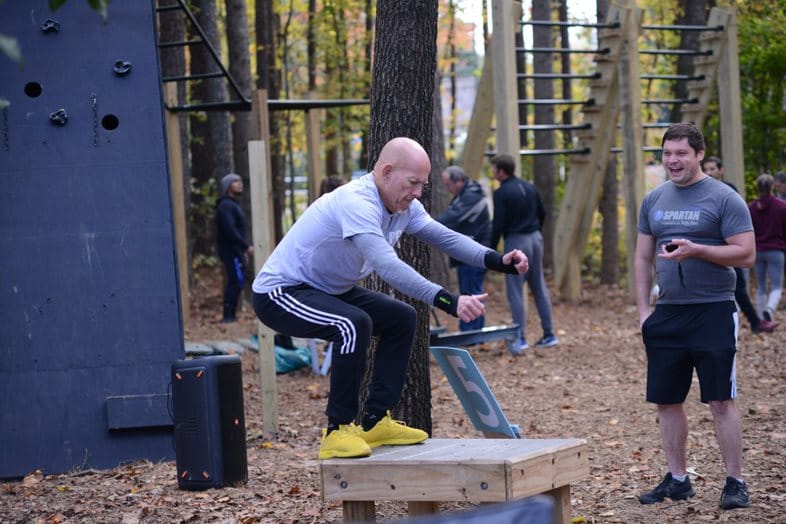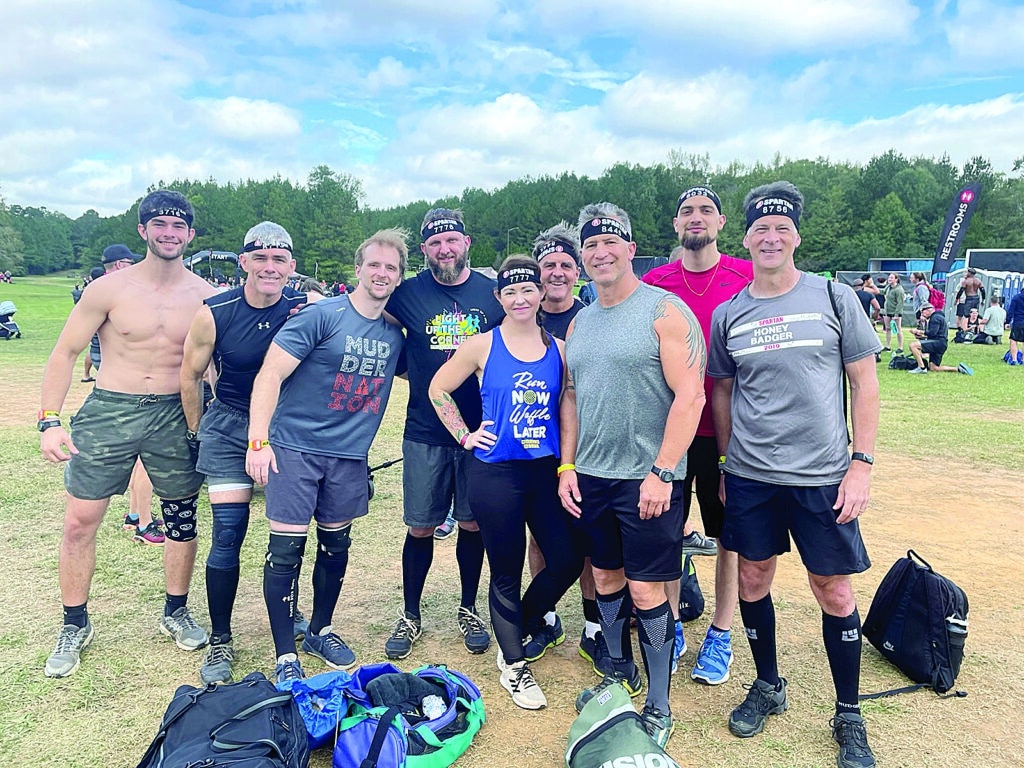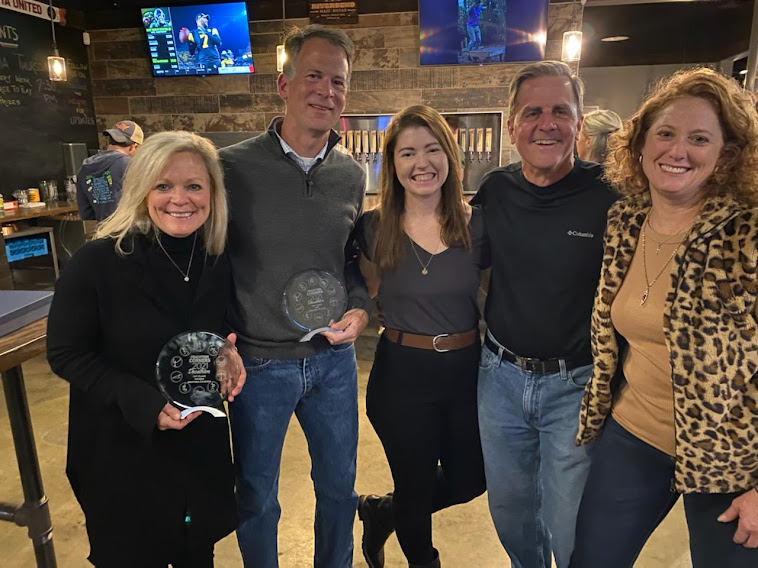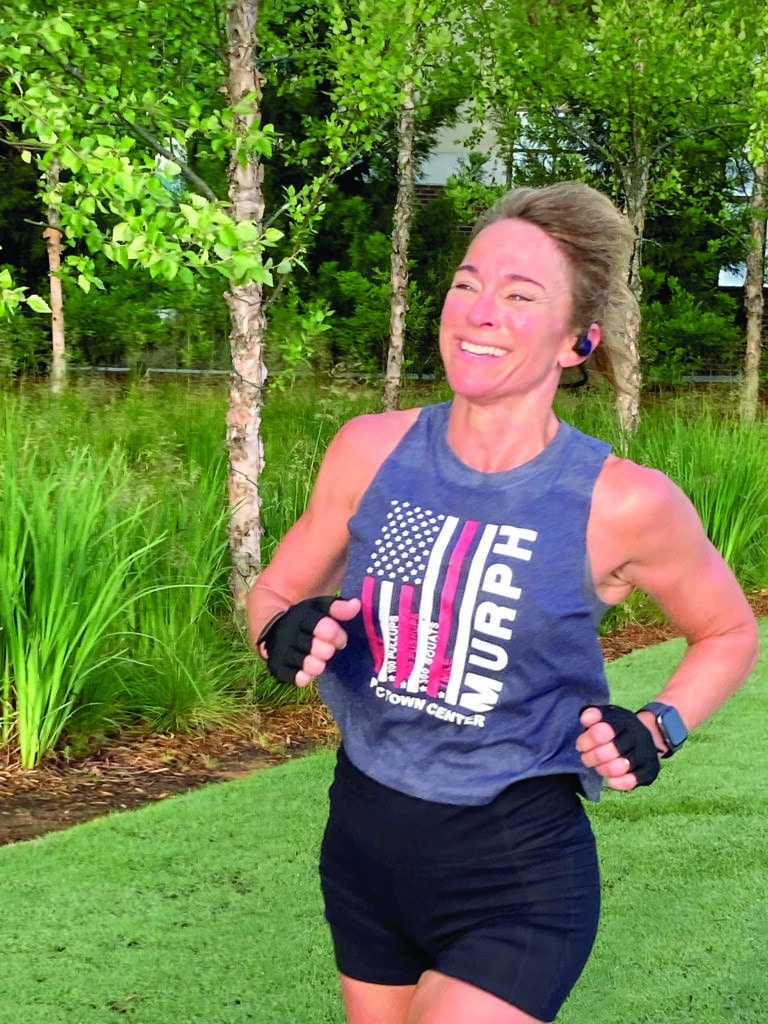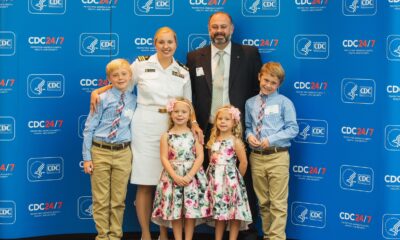Health & Wellness
And Just Like That, 60 Became the New 40
Published
3 years agoon
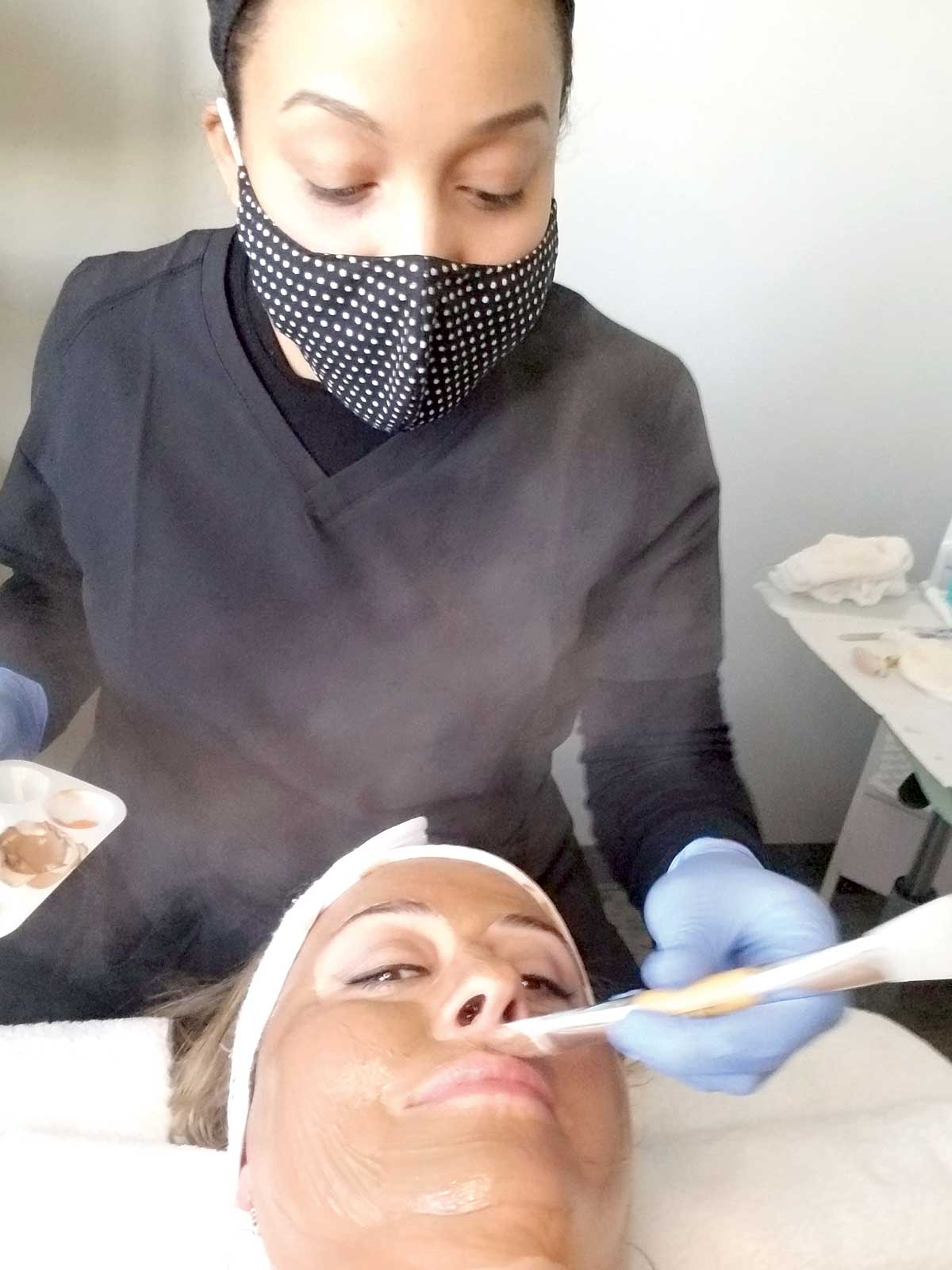
Better self-care, from anti-aging treatments and coiffures to dental, fitness and eating
It blew my mind when I saw Journalist Flora Gill’s tweet in early January exposing how drastically our perception of “women of a certain age” has changed over the last two decades. The eye-opener: In season one, the Golden Girls characters were younger than the current Sex and the City actresses. Let that sink in.
I wondered how Baby Boomers, the fastest growing segment of the population, felt about being “seniors” since they look rather different — let’s say, better — and live significantly longer than people aged 58 to 76 did just one generation ago. With a sizeable Peachtree Corners crowd enjoying their golden years, I set out to discover how today’s “60 is the new 40” phenomenon is taking shape in our city.
Better self-care throughout our lives undoubtedly contributes to our longevity. More active lifestyles, healthier choices, improved nutrition and tending to our intellectual, emotional and spiritual needs all contribute to our long-term health.
Let’s look at how some local individuals and organizations are helping us put our best foot forward now and as we step into our twilight years.
Skincare treatments fight Father Time
Suburban Med Spa offers an array of services that cater to self-care for every season of the year and of life. Aesthetician Taylor Olson has a background in medical aesthetics. She regaled me with knowledge about their anti-aging treatments while giving me a divine skin polishing facial, the first step in determining a client’s skin concerns.
“Aging is inevitable but preventative measures can be taken. Good skin is part what you do at home, but you should also be in the care of an aesthetician who can devise the right treatment plan,” Olson said.
Spa services and products are tailored to address each client’s specific goals. Many are unaware of the multitude of options available to treat issues like enlarged pores, acne scars, rosacea, sunspots, skin laxity, loss of volume, collagen and elastin.
For a good at-home regimen, arm yourself with medical grade skincare lines carried by the spa like Vital C by Image Skincare, Clayton Shagal, and Obagi. They’ll produce better results than over the counter products because they contain more of the most proven active ingredients. Each product Olson applied felt luxurious and smelled delightful — fragranced only by plant botanicals. They can be pricey, but as Aesthetician Blanca Verner said, “The best accessory is good skin,” so it’s absolutely worth the investment.’

“Our most popular skin care product for ages 55 and up is the Neo Therapy Neck & Décolleté Tightening Cream by Neocutis. There are over 100 plant stem cells and growth factors in their products, skin building blocks like collagen, elastin, peptides — the most potent form you can buy,” Olson shared. The formula was originally created in Switzerland for pediatric burn victims. Aesthetic dermatology swooped it up when skin began to regenerate from third-degree burns in just two weeks. Users can expect improvements in texture, fine lines and wrinkles.
Combat changes in aging skin in the treatment room with photo rejuvenation— an Intense Pulse Light (IPL) skin-tightening laser targeting areas of skin laxity where you’re losing plumpness and have more lines and wrinkles. It tightens the skin and treats age and sun spots by triggering the body’s natural response to heal wounds and regenerate the skin. Your body interprets it as a sunburn, so it sends peptides, collagen and elastin to rebuild — all things that make your skin look youthful. It’s great for crow’s feet around the eyes; it’s non-invasive and delivers results.
Next in the arsenal against aging skin? “Acids are an aesthetician’s best friend,” Olson chuckled. Glycolic, salicylic, or lactic — they all treat different things. For those who are sensitive to lasers, chemical peels are ideal. The best anti-aging peel containing the highest grade of acid in a chemical peel was developed in Italy: the PRX-T33. “When women come back in four weeks for their follow-up, it looks like eight years were removed from their face. It’s insane how tight and plump the skin is. We call it Botox in a bottle,” Olson described.
The big guns in the fight against stubborn lines and wrinkles are injectables. Clients who don’t mind needles go next door to see
Dr. Singhal, M.D., who owns the practice. He and his PA Amber administer filler injections like Botox and Juvéderm to rejuvenate the face by smoothing away facial lines and wrinkles, creating fuller lips and shaping facial contours.
Visit suburbanmedspa.com or call 678-282-0051.
The latest in senior coiffures
Gone are the bouffants of yesteryear. Today’s older adults opt for crowning glories that help them turn back the hands of time. Color-wise, anything goes! COVID had seniors embracing their grays, but according to Senior Colorist Faith Harding at Van Michael Salon, those same people are opting for some lowlights now to add dimension to their haircuts and break up the gray.
Senior Colorist, Faith Harding, at Van Michael in the Forum is seeing a return to dimension-adding lowlights among her mature clients. She notes they’re also more willing to experiment with non-traditional fashion color. Stylist, Ginger at Van Michael Salon in the Forum is seeing bolder choices being made by mature women in terms of hair cuts.
“We see more experimenting with fashion color,” Harding added. Her one rule to avoid looking dated: “Extremes like all black or all white age you. Anything in between is fair game.”
Stylist Ginger Rowland has noticed that undercuts on bobs — cutting short or shaving under the hair — have become popular among women of a certain age. “We have more seniors coming in to have their hair blown out for parties, or adding extensions for a new look,” Rowland said. The salon offers services for thinning hair and balding.
Visit vanmichael.com or call 678-987-3600.
Brushing and flossing regularly keeps seniors smiling
Kristina Dawson, DMD of Peachtree Corners Dental
Associates sees patients of all ages. Her recommendations for the oral care of the 60+ group are routine visits and daily maintenance at home. A dental team will monitor any changes.
“As we age, we become more susceptible to dry mouth, cavities that form on the root surfaces of teeth and it’s important to manage any systemic disease that can affect the oral cavity,” Dr. Dawson said. She feels prevention is key, along with early, conservative intervention when necessary.
Thinning enamel may cause teeth to yellow with age. For a brighter smile, patients may consider an at-home whitening kit or an in-office procedure.
Visit peachtreecornersdmd.com or call 770-448-5666.
The silver fox’s den
What’s new about where mature folks dwell these days? Seniors Real Estate Specialist (SRES) Certified Agent Amy Fuchs of FamilyHomesGa at Keller
Williams Chattahoochee North feels seniors are living their “best lives ever.” Contrary to what was the norm just a few years ago, downsizing is not always the way to go. Fuchs shared some exciting new developments.
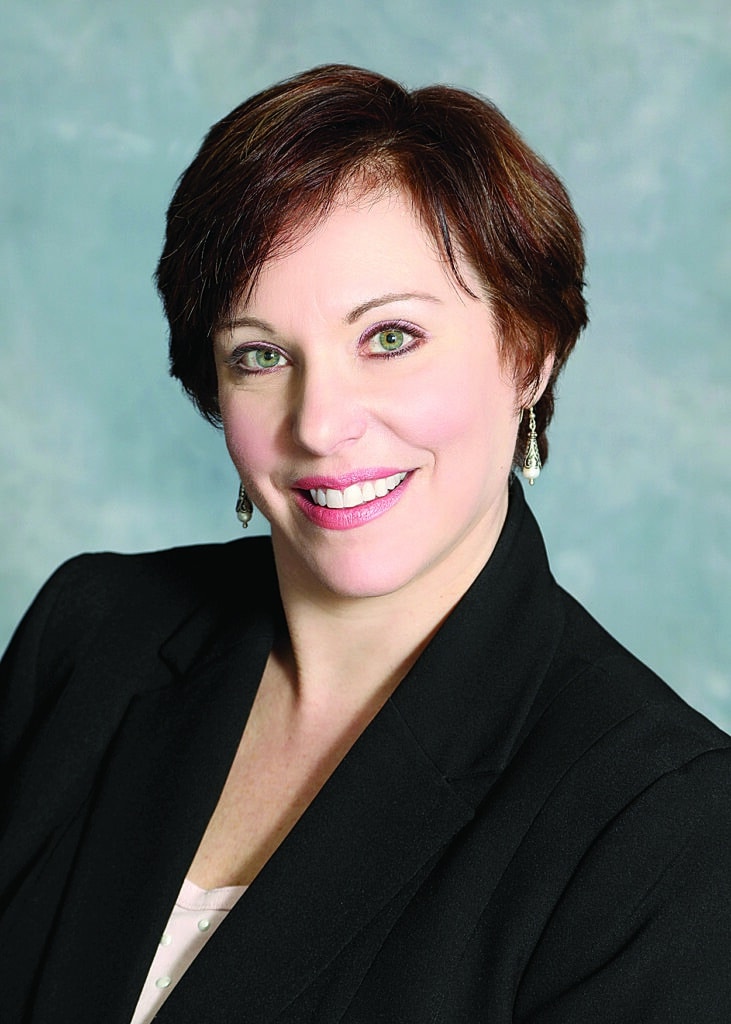
1. Upsizing: “Yes, I said upsizing,” Fuchs affirmed. Many are purchasing larger homes with the primary bedroom on the main floor for obvious convenience, yet they also want extra bedrooms, media rooms and play areas to enjoy when extended family and the grandchildren visit.
2. New construction near city centers: Live/play areas appeal to seniors who enjoy being within walking distance to all the action. Peachtree Corners Town Center is a popular example. With dozens of restaurants, Sprouts, nail salons and boutiques, the new construction around the center is a trendy spot for all ages.
“We often think of ranch style homes as the most popular among seniors, that isn’t necessarily the case anymore. Townhome living offers low maintenance and proximity to city centers. Seniors and builders are adding elevators to their options; it’s no longer a feature available only in the luxury market,” Fuchs said.
3. 55+ communities: Both as rental and purchase options, these communities are becoming lifelines for widows and widowers wanting to open up their lives after the tragedy of losing a spouse. Fuchs explained, “Instead of sitting in a big house and looking back, wonderful people wanting to be social and move forward are finding joy in the activities and social aspect these communities offer.”
The Silver Fox section on their website is dedicated to the 55+ crowd with tips, properties and vendors that appeal to their needs, Fuchs added.
Call Amy directly at 404-439-1031.
You’re not too old and it’s never too late
Adults are staying young longer in large part by adhering to today’s health directives to keep active. City Councilman Alex Wright (51) works out regularly with a unique, mixed age (20-70) group of athletes. They’ve been making good use of the Fitness Trail in Peachtree Corners since the pandemic shut down the YMCA.
Murph 2020 The Murph is a workout done on Memorial Day in honor of Lt Michael Murphy (Medal of Honor winner) Rich Woodfield (63) on the monkey bars on the Peachtree Corners Fitness Trail Terry Evans (70+) box jumping at the Decathlon held at the Fitness Trail in Peachtree Corners The Honey Badgers team ranging in age from 20-63 at the Spartan race in Conyers – October 2021 Decathlon awards ceremony Amy Massey, Organizer of the Glow Run, running at the 21 Murph
At the height of closures, they were meeting seven days per week. Currently, various groups are meeting once or twice a week in the winter for boot camp style, or HIIT (High Intensity Interval Training) workouts, since they’ve been able to return to the gym. Some focus on cardio, some train for Spartan races and others concentrate on obstacles.
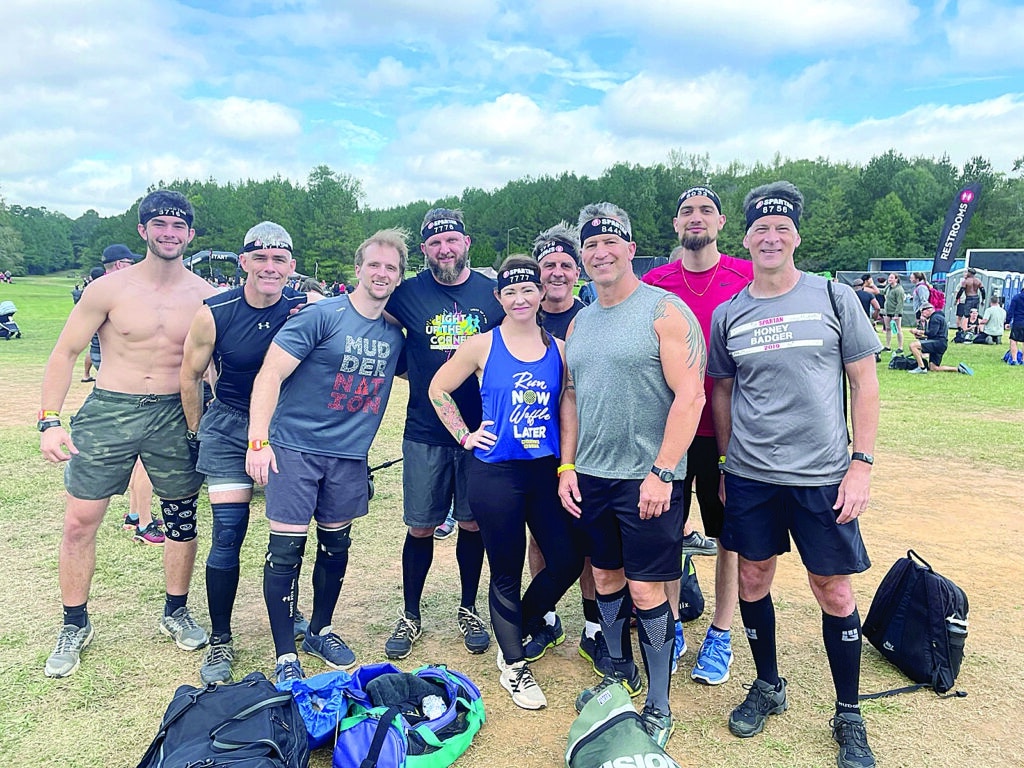
Anywhere from four to 20 people gather as early as 5:30 a.m. for strength, cardio and body weight workouts using obstacles on the trail and equipment they bring along like dumbbells, kettlebells, medicine balls, ropes, sandbags and jump ropes. Strength exercises include kettlebell swings, dumbbell presses and sandbag snatches.
Running with a 30 lb. ball or a weighted vest, burpees, mountain climbers, rope slams and jump rope constitute cardio work. Obstacles on the trail include rope climb, wall climb, rings and the rope traverse.
“Some can outperform people 20 to 30 years younger. They’ve taken good care of themselves and put in the daily work,” Wright revealed. Like Rich Woodfield (63) who competes in Spartan races and seldom misses a workout. “He didn’t start exercising until his late forties. It’s never too late,” Wright said. He also mentioned Amy Massey and Kristin McEwen who are in incredibly good shape at 50+, and 71-year-old Terry Evans, who participated in the November decathlon and works out daily at CrossFit.
Email Alex directly at ajwright1115@gmail.com to join the athletes.
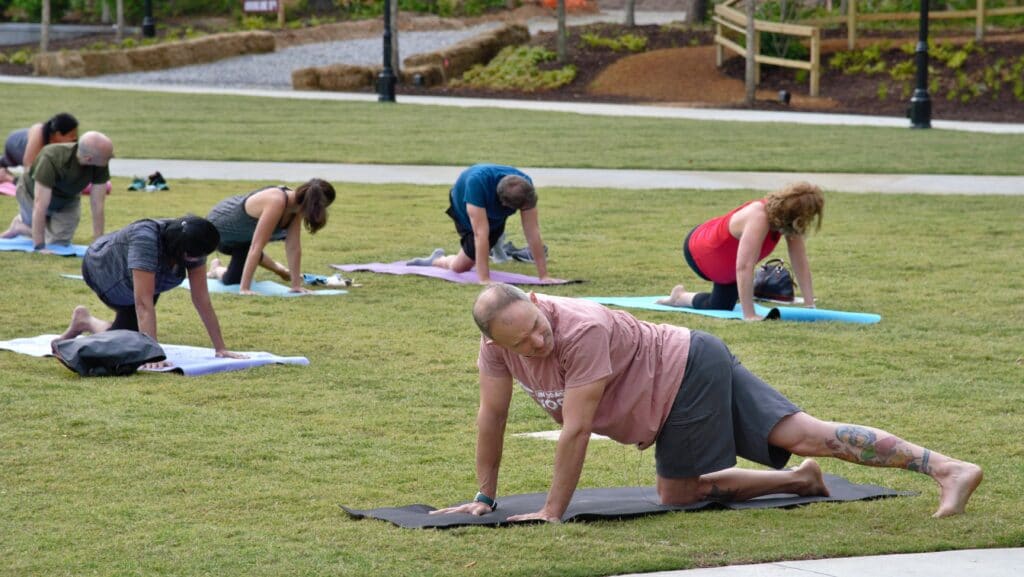
Flexibility = longevity
If kettlebells, tire flips and rope climbing are not your speed, try exercise that’s not as jarring on your joints. David Penn, founder of Sun Dragon Yoga, can ameliorate the daunting physical challenges that aging can present. Yoga is a brilliant way to maintain muscle mass, flexibility and balance.
Practicing yoga comes with an added benefit: it’s instrumental in the reversal of cognitive decline and Alzheimer’s disease prevention.
Sun Dragon Yoga has been offering classes tailored to seniors in the Peachtree Corners area for six years. As a member of the Alzheimer’s Research and Prevention Foundation (arpf.com), Penn incorporates research-based, results-producing findings into daily classes.
Within a few weeks, members notice increased strength, greater flexibility, improved balance and overall well-being in mind, body and spirit — there’s a reason why yoga’s popularity is growing. “Two 45-minute classes a week can change your life,” Penn exclaimed.
Visit sundragonyoga.com or call 313-303-0096.
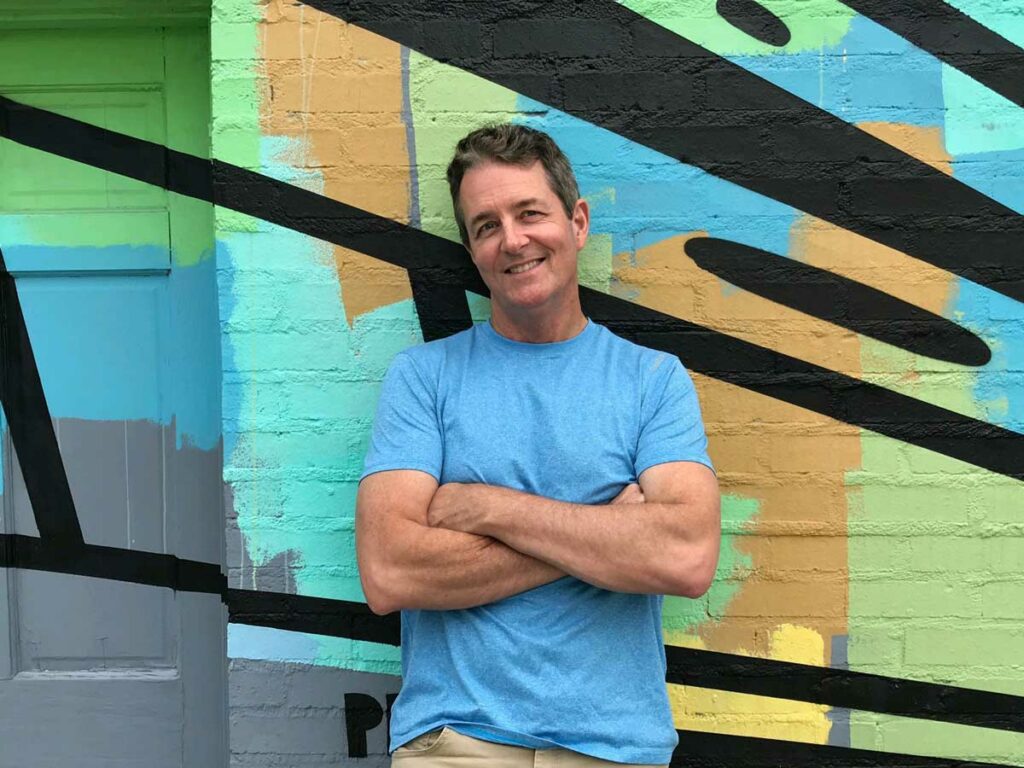
Train to independence
Certified Personal Trainer Mick Danskin trains a general clientele but found a niche working with elders. “Seniors want to stay in their homes and remain independent for as long as possible. Although some of them have seen physical therapists, the amount of care they receive is limited by insurance. With fewer limitations, I’m free to correct their issues, usually by visiting clients twice weekly for one-hour sessions,” Danskin explained.
Seniors receive a 10-session discount at $60 per session (regularly $80), which includes a free in-home assessment. Clients with heart conditions must provide a doctor’s release prior to commencing an exercise program.
Danskin specializes in correcting muscle imbalances, posture, lack of flexibility and strength issues to help seniors live safely independently. Some of his clients recovering from illness or surgery find themselves unable to overcome postural problems. “I’ve helped several people gain functional strength, energy and re-learn how to walk,” Danskin said.
He works through customized stretches, balance and strength exercises which improve joint discomfort. “Movement and exercise stimulate bone density, staving off osteoporosis. The recommendation for otherwise healthy seniors would be at least 30 minutes of moderate to vigorous exercise, five days a week,” Danskin shared.
Call Danskin at 678-491-0332.
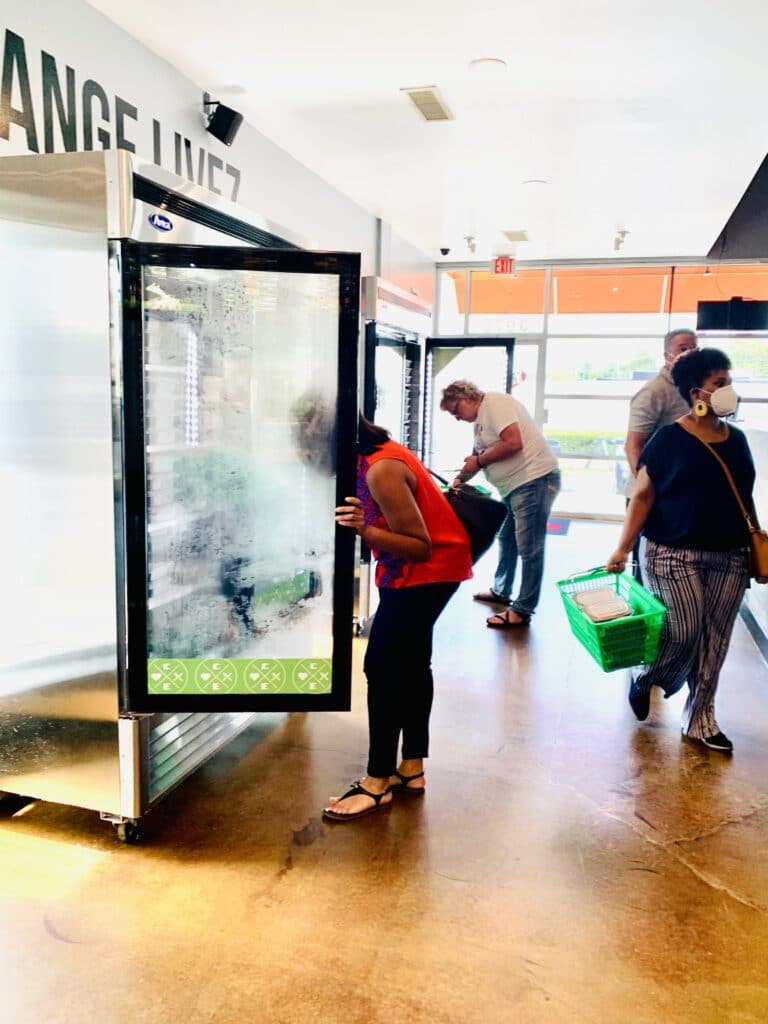
Healthy eating prolongs life
The owner of Clean Eatz, Nancy Glass, has the answer for seniors who want to remain autonomous without the hassle of cooking for one or two people. Properly portioned, health-conscience, prepared meals are ideal for anyone interested in healthy eating made easy.
Clean Eatz sources quality ingredients to offer the customers affordable, nutritious meals. Nothing is fried and no salt or oil are used in their meal preparation — only sodium-free seasonings and gluten-free sauces.
“We offer weekly meal plans as Toplow as $6.52 a meal. The meals are prepared and fresh. You select what you want from a menu that changes weekly. Then, just heat and eat! It’s like having a personal chef. No dishes to wash, no grocery shopping, just enjoy,” Glass beamed.
Customers make their selections for the week and the entire order goes home with them. There are five entrée options for lunch, dinner or breakfast, and a sixth item for breakfast. You can order any quantity of each meal and skip meals you don’t want.
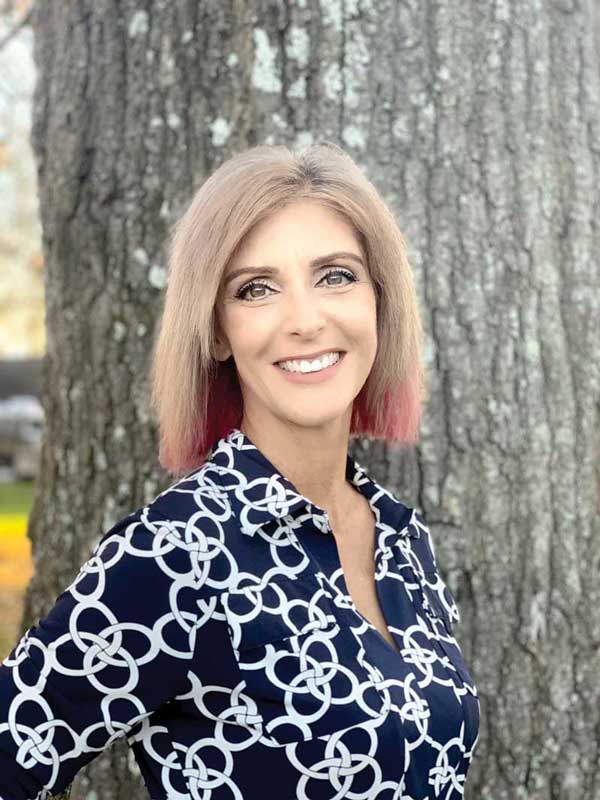
The Grab N Go freezers are stocked with meals that were made fresh in the café and then frozen. They can cater to all dietary needs: vegan, vegetarian, pescatarian, extra protein (great for maintaining muscle), low carb and BASIC. BASIC meals are prepared with no seasonings or sauces, allowing for customization when you take them home.
Shareable family meals containing four servings are priced at $17.99. Grab N Go meals are readily available to boost your weekly meal plan recipes, providing additional variety in case you need more or want to try something new.
Fresh, hot, made-to-order items are available from the café menu. Burgers, build your own bowls, salads, wraps, flatbreads and smoothies are available for dine in, to go or delivery through UberEATS. The average price is $8.79.
“Clean Eatz is here to help anyone striving for a healthy lifestyle. Once you’ve taken that first step, it becomes a way of life. Small improvements lead to BIG changes. You’ll start to feel better and notice the changes in your body,” Glass said.
Visit cleaneatz.com or call 678-833-5353.
The cultural shift in attitude towards what it means to be older is evident in Peachtree Corners, our little microcosm of society. Better knowledge of self-care trends, proper food and fitness régimes, and maintaining social connections all contribute to staving off cognitive and physical decline. Enjoy your extended active years, for 60 has indeed become the new 40!
Related
Patrizia hails from Toronto, Canada where she earned an Honors B.A. in French and Italian studies at York University, and a B.Ed. at the University of Toronto. This trilingual former French teacher has called Georgia home since 1998. She and her family have enjoyed living, working and playing in Peachtree Corners since 2013.

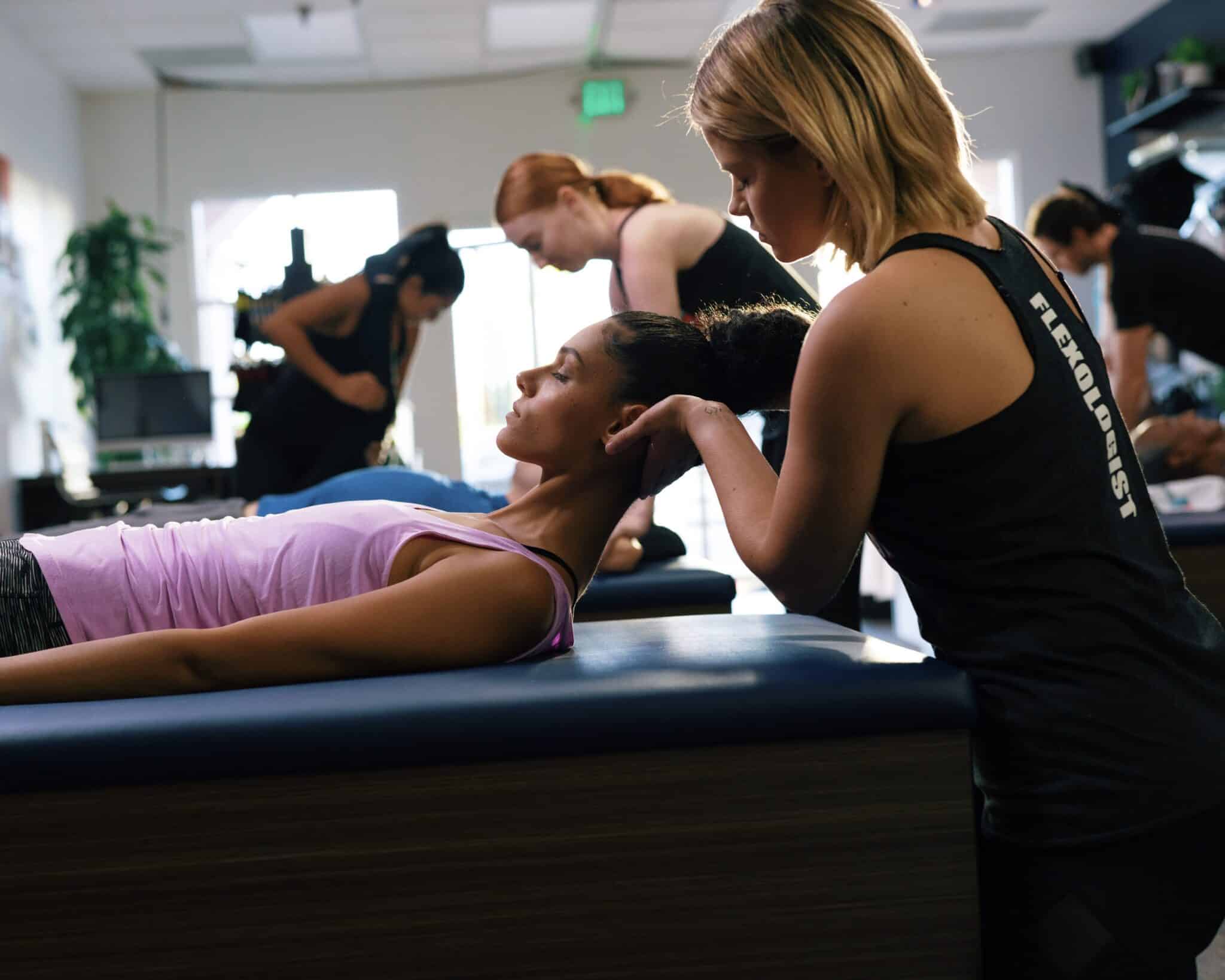
The Forum in Peachtree Corners features a variety of businesses focused on health and wellness, offering services designed to meet individual needs. From fitness programs and recovery treatments to relaxation and aesthetic care, each business prioritizes physical and mental well-being.
StretchLab
StretchLab offers personalized stretching sessions to improve flexibility, mobility and overall physical health. Each client’s journey begins with a focus on their goals, whether it’s enhancing athletic performance, reducing stress or relieving pain.
“We dive into understanding each individual’s physical and mental needs to craft the perfect stretch experience,” said franchise owner Ghada Kheirbek.
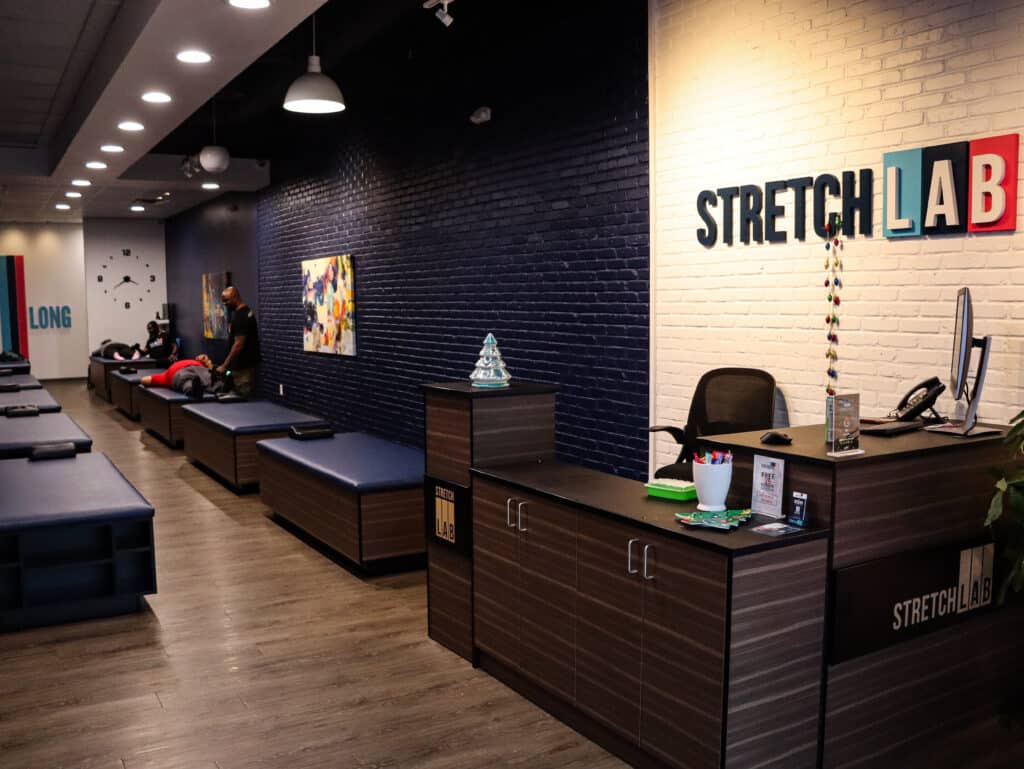
StretchLab’s MAPS technology sets it apart, analyzing Mobility, Activation, Posture and Symmetry using advanced tools. This allows flexologists to create custom plans tailored to individual progress. Sessions incorporate Proprioceptive Neuromuscular Facilitation (PNF) techniques, combining muscle activation and deep stretching for long-term results.
“Our approach focuses on areas you can’t stretch on your own, unlocking better movement and relief,” Kheirbek explained.
Community engagement is a priority, with partnerships with local schools, yoga studios and organizations.
StretchLab is located at 4880 Peachtree Parkway, Suite 1125, Peachtree Corners, GA 30092. For more information or to schedule a session, visit stretchlab.com/location/peachtree-corners or call (470) 410-6664.
Dermani MedSpa
Dermani MedSpa provides medical-grade aesthetic treatments, including facials, Botox and laser hair removal. The medspa focuses on enhancing natural beauty while prioritizing safety and comfort, offering services performed by highly trained staff in a professional, welcoming environment.
Each treatment is tailored to individual needs, ensuring clients achieve results aligned with their goals. Clients value the medspa’s attention to detail and commitment to quality, making it a trusted choice for aesthetic care.
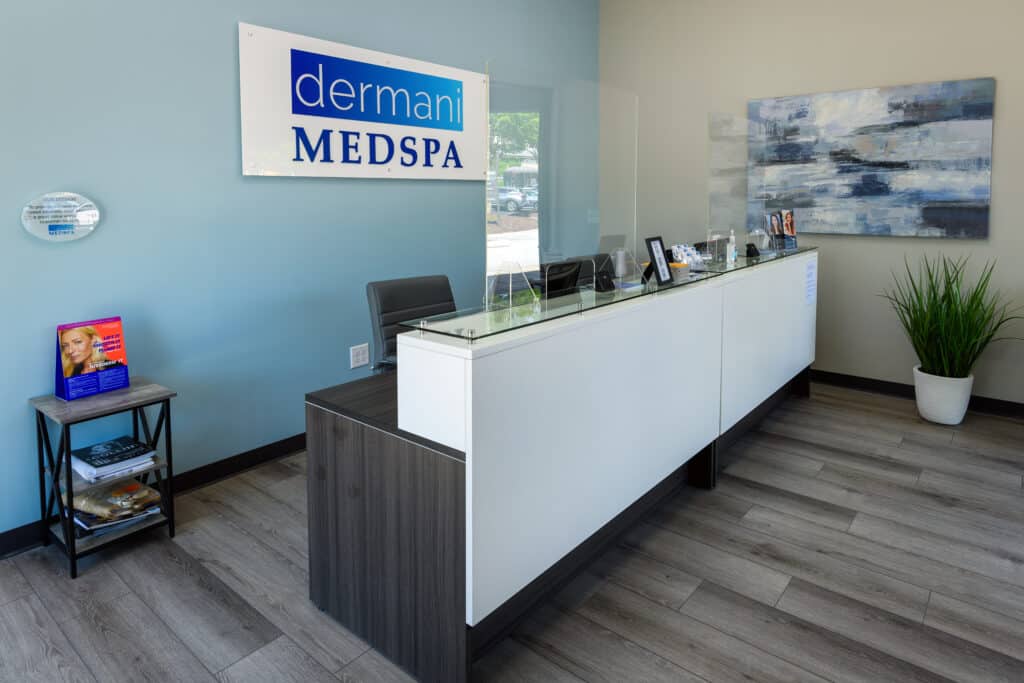
“Dermani offers a variety of medical-based aesthetic treatments,” said Charlotte Hinton, marketing manager at Jamestown, The Forum. “Outside of just loving their team as a whole — their girls are the best — my colleagues and I love to see them for facials, Botox and laser hair removal.”
The medspa’s reliable, results-driven services cater to clients seeking everything from routine skin maintenance to advanced aesthetic solutions.
Dermani MedSpa is located at 5165 Peachtree Parkway, Suite 230, Peachtree Corners, GA 30092. To schedule an appointment or learn more, visit dermanimedspa.com/peachtree-corners-norcross or call (404) 383-1108.
The NOW Massage
The NOW Massage is more than just a spa; it’s a tranquil retreat designed to help clients disconnect from daily stress and reconnect within. The massage studio has a serene atmosphere inspired by beachside destinations.
“In today’s fast-paced, digitally driven world, self-care is no longer a luxury but a necessity,” said Gara Post, co-founder of The NOW Massage.
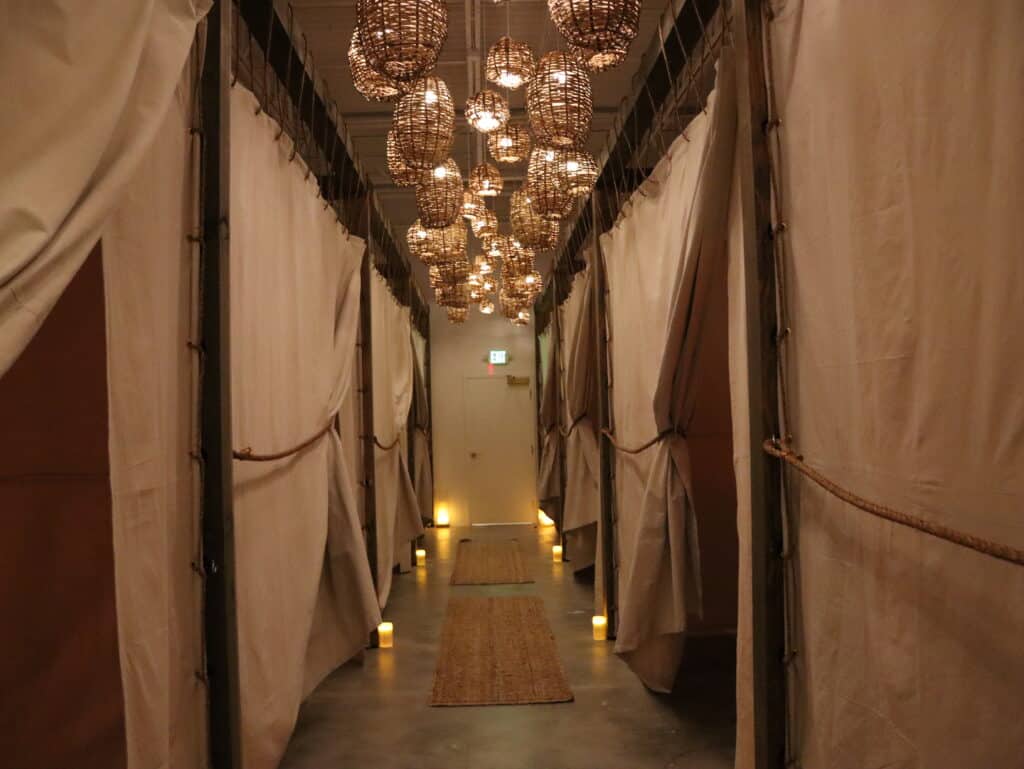
The NOW’s thoughtfully curated menu features three signature massages: The NOW, a relaxation-focused experience; The HEALER, which balances energy and reduces stress; and The STRETCH, a recovery-focused massage ideal for active lifestyles. Enhancements like Herbal Heat Therapy, Deep Tissue and Gua Sha allow clients to customize their experience.
“Our therapists undergo advanced training to ensure each session is tailored to individual needs,” explained Devin Borland, franchise owner.
Community involvement is central to The NOW’s mission. The studio supports first responders, recognizes educators and participates in local wellness events. “We’re proud to be part of the Peachtree Corners community,” Borland added.
The NOW Massage is located at 5161 Peachtree Parkway, Suite 615, Peachtree Corners, GA 30092. For appointments, visit thenowmassage.com/peachtree-corners or call (678) 615-3375.
Alloy Personal Training
Alloy Personal Training is redefining fitness in Peachtree Corners with a personalized approach tailored to help clients achieve lasting health and wellness.
“Our goal is to create a sustainable fitness journey for every individual, no matter where they’re starting,” said Margaret Bruemmer, fitness director at Alloy Personal Training.
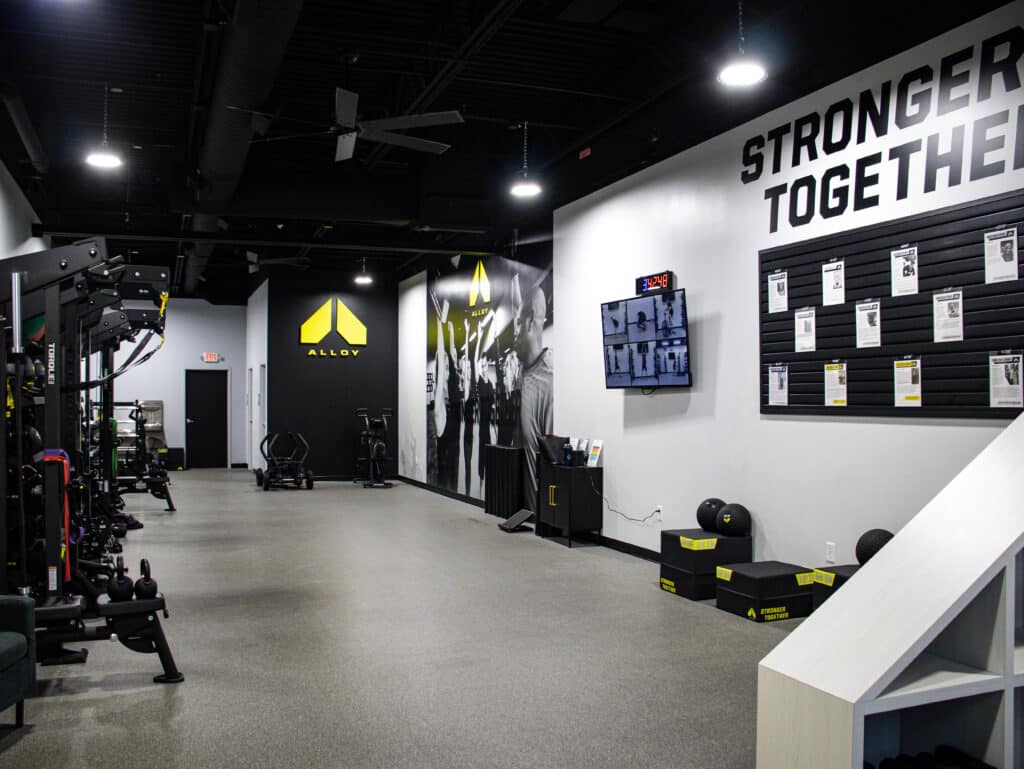
At the heart of Alloy’s method is the Functional Movement Screen (FMS), a comprehensive evaluation tool that assesses a client’s current fitness level. This process ensures that every workout is not only effective but also safe.
“We use FMS to identify a client’s unique needs and design a program that works for them,” Bruemmer explained.
Trainers provide one-on-one guidance, helping clients navigate structured routines that focus on proper form, technique and measurable progress. Each session builds confidence while addressing individual health goals.
Located at 4880 Peachtree Parkway, Suite 1135, Peachtree Corners, GA 30092, Alloy Personal Training offers flexible hours to accommodate clients’ busy lifestyles. To learn more or schedule a consultation, visit alloypersonaltraining.com/location/alloy-peachtree-corners-ga or call (678) 578-4984.
Club Pilates
Club Pilates combines timeless Pilates principles with innovative techniques to offer a holistic approach to fitness and wellness. The studio provides a welcoming environment for clients of all fitness levels, ensuring that everyone can benefit from the practice.
“Pilates is about more than just fitness — it’s about helping our members discover balance, both physically and mentally,” said Victoria Steere, director of community engagement.
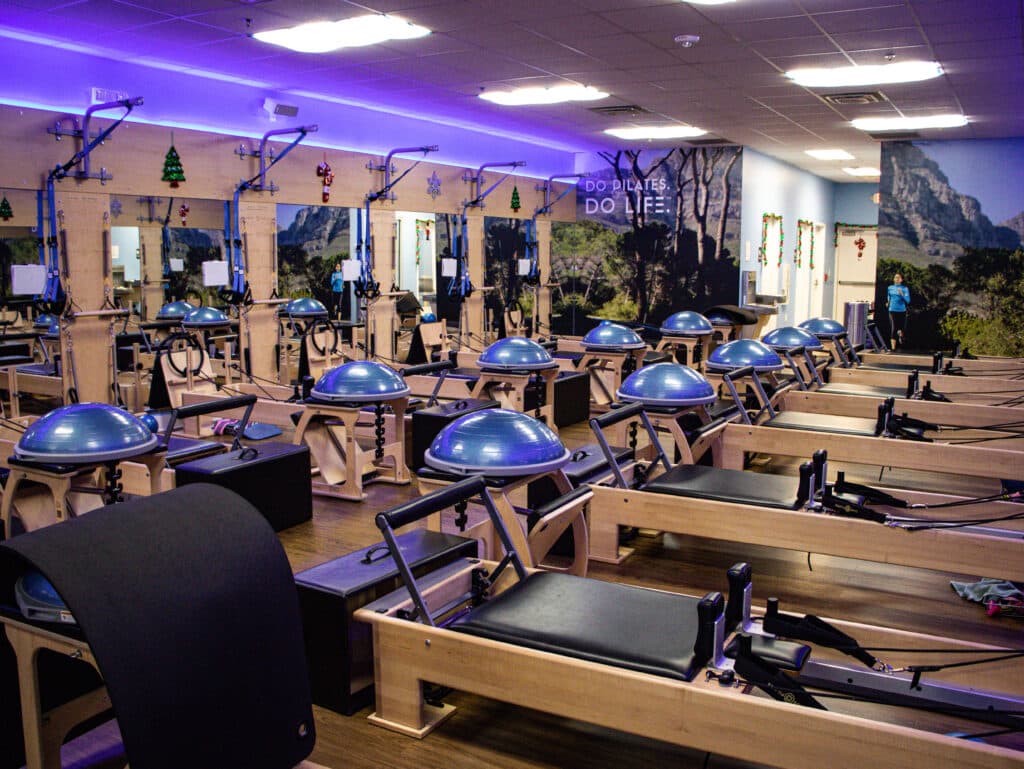
Each class is tailored to individual needs, with certified instructors guiding clients through sessions that improve posture, core strength and overall body awareness. Whether it’s a high-energy cardio class or a gentle stretch-focused session, Club Pilates helps clients achieve their fitness goals while promoting mindfulness and intentional movement.
“Many of our members describe their time here as an essential hour of self-care, a break from their busy lives,” Steere added.
By integrating physical and mental balance into its classes, Club Pilates empowers clients to leave each session feeling stronger, more confident and recharged.
The studio is located at 4880 Peachtree Parkway, Suite 1130, Peachtree Corners, GA 30092. For more information or to schedule a session, visit clubpilates.com/location/peachtreecorners or call (404) 902-2583.
Icebox Cryotherapy
Icebox Cryotherapy brings innovative recovery and wellness treatments to Peachtree Corners, offering clients a practical way to rejuvenate their bodies and manage stress. Specializing in full-body cryotherapy, cryofacials and compression therapy, the studio is a haven for those seeking to reduce inflammation, improve circulation and enhance overall physical performance.
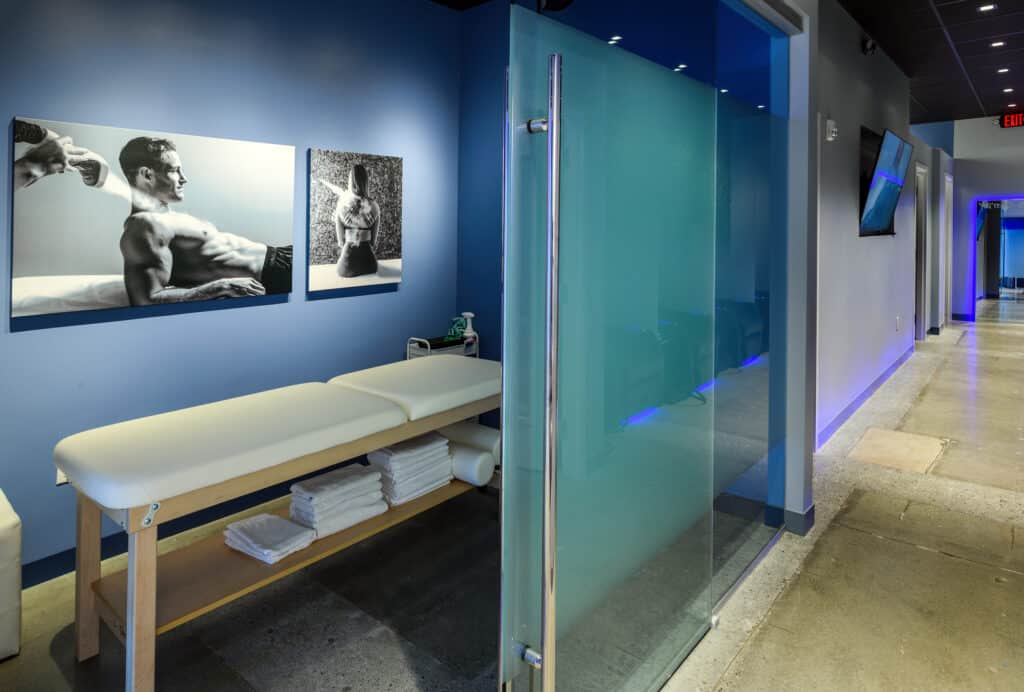
Full-body cryotherapy sessions expose the body to controlled cold temperatures, stimulating a natural response that accelerates recovery and reduces tension. Cryofacials, on the other hand, provide a gentle way to refresh the skin, diminish puffiness and promote a youthful glow. For athletes or individuals managing chronic muscle stress, compression therapy targets specific areas to relieve tension and improve mobility.
“They’re a fantastic option for anyone looking to rejuvenate their skin while managing stress,” shared Hinton.
Located at 4880 Peachtree Parkway, Suite 1120B, Peachtree Corners, GA 30092, Icebox Cryotherapy invites clients to experience their transformative services. For appointments or more information, visit iceboxtherapy.com/peachtree-corners-ga or call (678) 284-2570.
Perspire Sauna Studio
Perspire Sauna Studio is set to redefine wellness in Peachtree Corners, combining ancient practices with modern technology to create a sanctuary for self-care. Offering infrared sauna therapy, red-light therapy and contrast therapy, the studio is designed to help clients detox, de-stress and recharge.
“We’re bringing cutting-edge wellness options to the community, creating a space where self-care becomes a part of your weekly routine,” said Amanda Arboleda Ridley, studio owner.
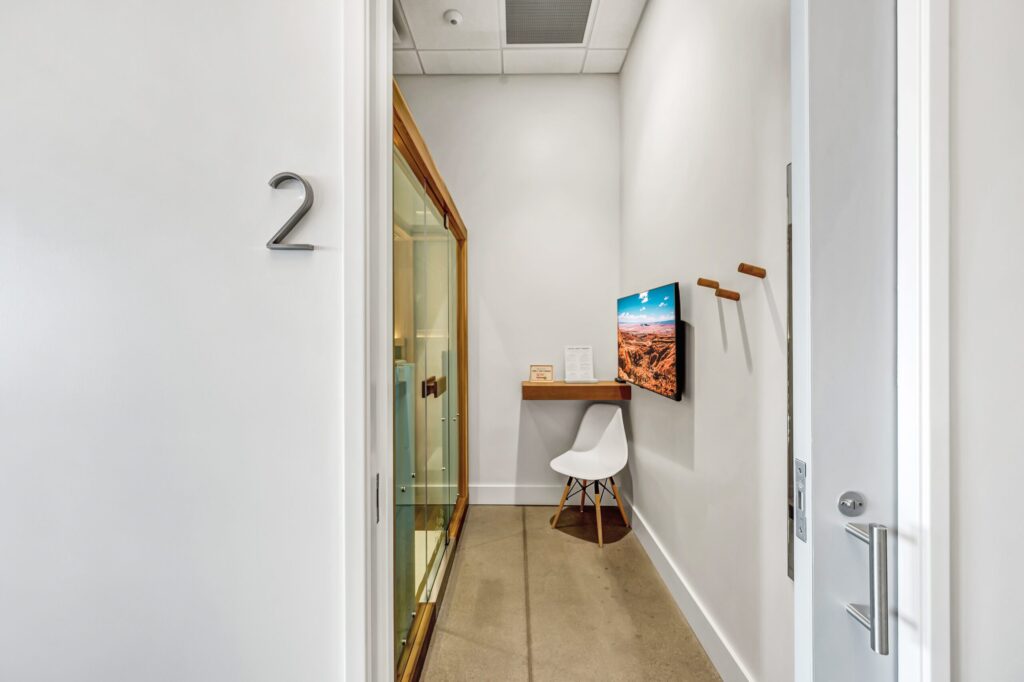
Infrared saunas use controlled heat to promote detoxification and improve circulation, providing both physical and mental health benefits. Red-light therapy enhances skin health and stimulates cellular repair, while contrast therapy alternates between hot and cold treatments to invigorate the body and strengthen the immune system.
“Whether it’s a deep detox, improving your skin or just carving out 40 minutes of uninterrupted ‘you’ time, we help clients feel their best,” Ridley explained.
For those seeking a tranquil environment to reset and recharge, Perspire Sauna Studio offers a personalized experience tailored to individual wellness goals.
The studio will be located at 4880 Peachtree Parkway, Suite 1120A, Peachtree Corners, GA 30092. For updates and inquiries, visit their website, perspiresaunastudio.com/ga/peachtree-corners, or contact them directly.
Related
City Government
City of Peachtree Corners Awarded Health Wellness Grant
Published
6 months agoon
November 7, 2024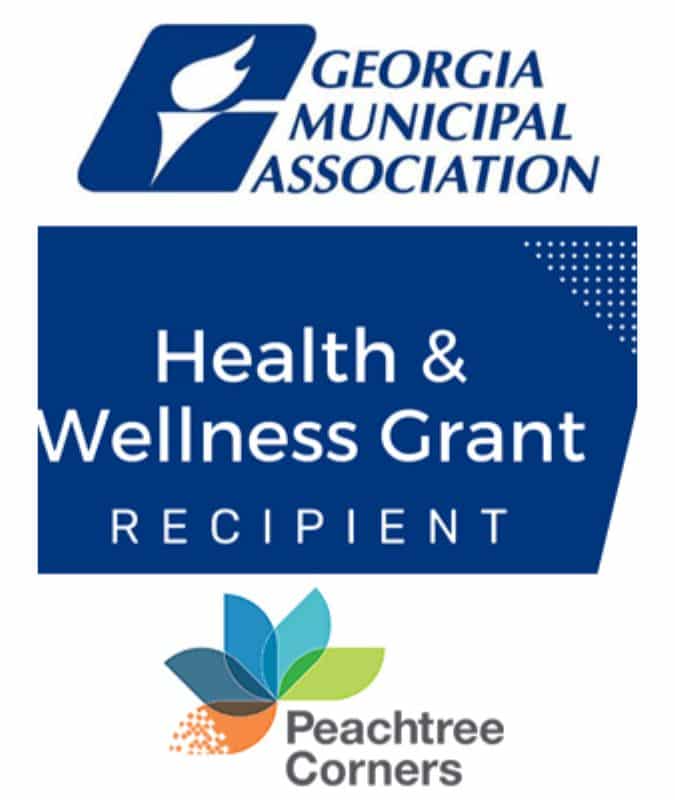
The City of Peachtree Corners has been awarded one of the 2024 Health Wellness Grants by the Georgia Municipal Association (GMA). The grant supports the city’s commitment to facilitating positive change in workplace culture and going the extra mile for employees’ health and wellness.
GMA is honored to collaborate with the City of Peachtree Corners at every step of their health wellness journey. Awards are made statewide to participating employers enrolled in one or more medical plans through the Georgia Municipal Employees Benefit Services (GMEBS) Life and Health Insurance Fund.
The Health Wellness Program at GMA helps members embrace a variety of skills, mindsets and cultures to encourage utmost well-being through workplace health wellness initiatives. These initiatives have demonstrated a track record of improving employee well-being and quality of life while enhancing workplace morale, reducing medical claims and maximizing cost impact.
“As a city, we are committed to fostering an environment where our employees’ health and well-being are a top priority,” said City Manager Brian Johnson. “This grant will enable us to build on our efforts to create a workplace culture that not only promotes wellness but also empowers our staff to make healthier lifestyle choices every day. Our employees are our greatest asset, and investing in their well-being ultimately benefits both the City of Peachtree Corners and the community we serve.”
Workplace health wellness
The City of Peachtree Corners has designated a Health Wellness Champion to coordinate/oversee the program and work in partnership with GMA to facilitate the planning of targeted activities. Jennifer Bonacci, assistant finance director, has expounded on how the City of Peachtree Corners will benefit from implementing workplace health wellness initiatives.
“We are excited to use our grant money to help make a difference in the lives of our employees by creating an atmosphere of health and wellness,” said Bonacci. “Adult fitness opportunities are often put on the back burner due to work schedules, long commutes and family obligations. We hope to enable our employees to make small choices each day to increase their overall health and wellness and build a community of support and encouragement around health and wellness.”
For more about the City of Peachtree Corners, visit peachtreecornersga.gov/1/Home.
To learn more about GMA’s Health Wellness Program, visit them online here.
Related
Health & Wellness
The NOW Massage Opens Peachtree Corners Boutique at The Forum
Published
7 months agoon
October 15, 2024
Grand opening set for October 21
The NOW Massage, a growing wellness franchise offering high-quality, affordable massage services in a chic, inspired setting, will open its first Peachtree Corners location on Monday, October 21. The boutique, located in a 2,414-square-foot space at The Forum, is owned and operated by area residents Devin and Amanda Borland, who also own and operate The NOW Massage Roswell. They bring over a decade of sales and customer service experience to their franchising journey with The NOW.
“After building a loyal following of guests and Ritual Members at our Roswell boutique, we look forward to introducing Peachtree Corners to The NOW’s menu of customizable massages, monthly memberships and nourishing products,” said Devin.

Each The NOW Massage location is designed with a minimalist aesthetic that incorporates raw elements and natural materials to create a soothing oasis. Interiors feature natural wood surfaces and exposed beams coupled with sheep skins and rawhides, cactus galleries and crystal grids, setting the tone for a relaxing experience.
Grand opening specials
To celebrate the boutique’s grand opening week from October 21–28, all massage bookings will receive a complimentary enhancement. Guests can choose from two of The NOW’s best-selling signature add-on treatments to amplify their therapeutic massage, including Herbal Heat Therapy, in which heat packs are used on the neck and back during treatment to provide a deeper sense of relaxation or Fresh Eyes, a soothing, hydrating eye mask with vitamins and antioxidants.
For guests who want to make massage a regular part of their monthly or bi-monthly self-care routine, The NOW also offers Ritual Membership packages that include savings on massages, roll over credits, perks and more.
The first 50 guests to join as a Ritual Member at the Peachtree Corners location will receive a complimentary curated gift bag filled with a selection of best-selling products from the company’s Nourish, Scent and Room collections.

With boutiques currently open from coast to coast and steady expansion on the horizon, The NOW Massage is excited to bring its thoughtfully crafted menu, healing products and signature design to The Forum in Peachtree Corners and to other cities across the United States.
For more information or to book a massage, visit thenowmassage.com/peachtree-corners.
Related
Read the Digital Edition
Subscribe
Keep Up With Peachtree Corners News
Join our mailing list to receive the latest news and updates from our team.
You have Successfully Subscribed!

GA Tech Launches First-of-its-Kind GT Atrium in Peachtree Corners

Katherine Lafourcade — A Journey of Passion, Resilience and Giving Back

Digital Edition

PCBA Announces 2025 Scholarship Winner

Paul Duke STEM High School Student Earns CGO Scholarship

World Blood Donor Day Starts Here: Theo’s Miracle, Katherine’s Mission [Podcast]

Peachtree Corners Grows Business Opportunities Through Economic Development

Executive Function: A Tribute to Working Moms

Simpson Elementary Marks Exceptional Children’s Week

Executive Function: A Tribute to Working Moms

Official City Merchandise Line Debuts This Saturday at Town Green

Peachtree Corners Grows Business Opportunities Through Economic Development

Digital Edition

World Blood Donor Day Starts Here: Theo’s Miracle, Katherine’s Mission [Podcast]

Paul Duke STEM High School Student Earns CGO Scholarship

PCBA Announces 2025 Scholarship Winner

Light up the Corners [Video]

Capitalist Sage: Business Leadership in Your Community [Podcast]

Cliff Bramble: A Culinary Adventure through Italy

Top 10 Brunch Places in Gwinnett County

A Hunger for Hospitality

THE CORNERS EPISODE 3 – BLAXICAN PART 1

Top 10 Indoor Things To Do This Winter

The ED Hour: What it takes to Remove Barriers from Education

Peachtree Corners Life
Topics and Categories
Trending
-
Digital Edition4 days ago
Digital Edition
-
Podcast4 days ago
World Blood Donor Day Starts Here: Theo’s Miracle, Katherine’s Mission [Podcast]
-
Business3 days ago
Peachtree Corners Grows Business Opportunities Through Economic Development
-
Community2 days ago
Executive Function: A Tribute to Working Moms


